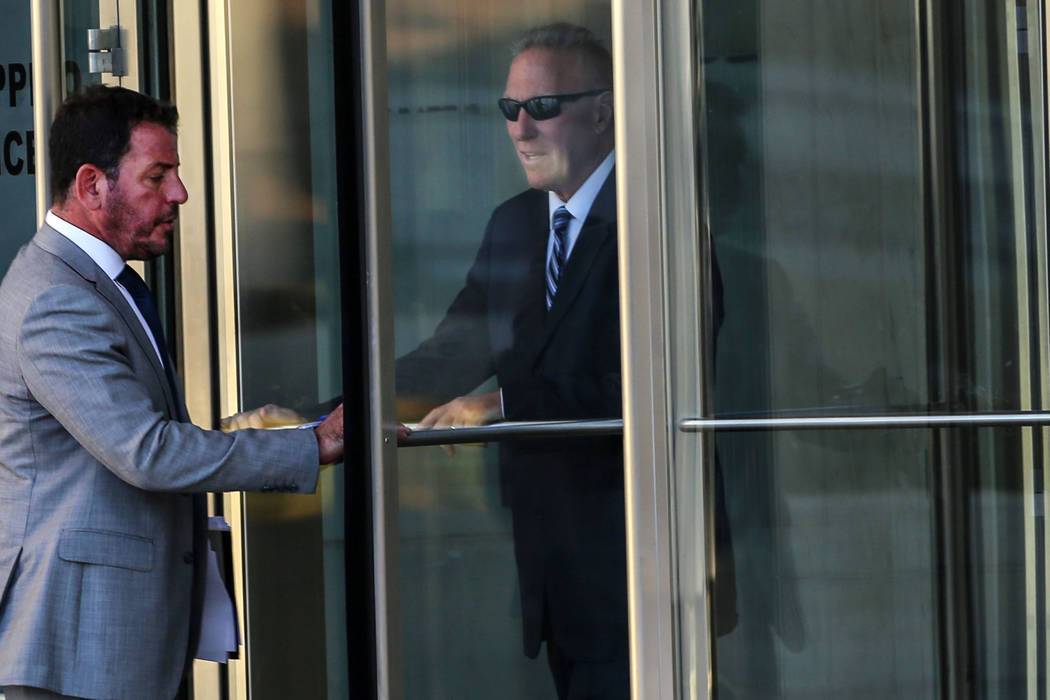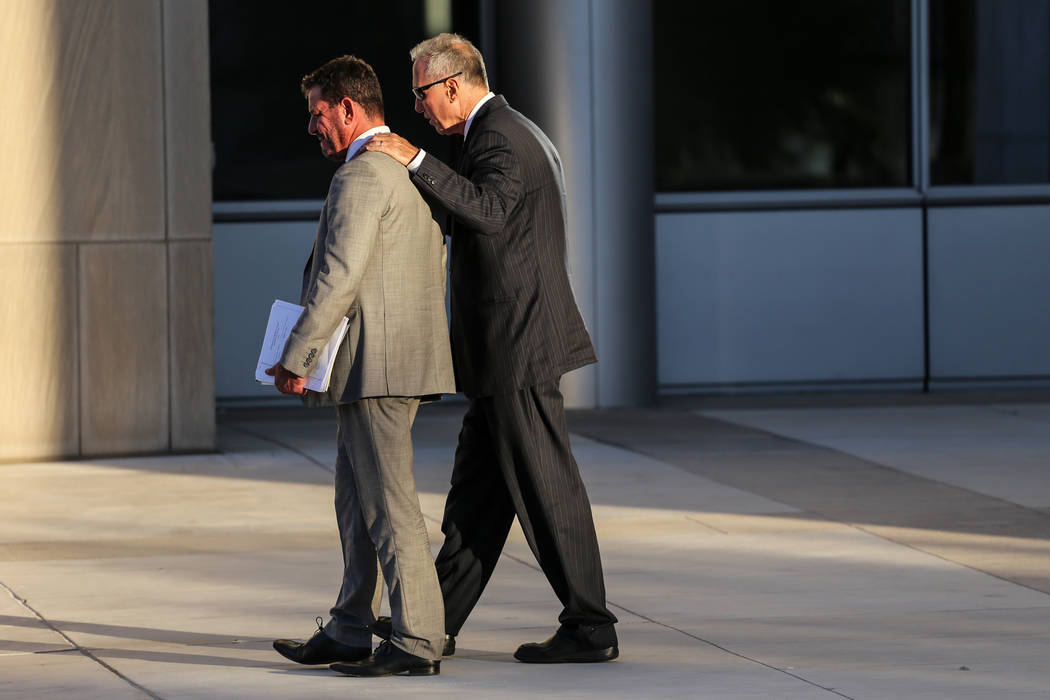Judge orders immediate jail for man who sold black rhino horns
The lucrative underworld of wildlife taxidermy led to conversations about a giraffe bust, which led to emails about a finger necklace and a shrunken head, which led two men to someone who said he could find a buyer interested in the horns of a critically endangered black rhinoceros.
That landed Edward Nathan Levine in a Las Vegas federal courtroom, where on Friday he stood before U.S. District Judge Gloria Navarro, trying to explain how he found himself in the business of herbal supplements.
Levine, a man with ties to the former Colombian drug cartel, was convicted by a jury this week of illegally selling the horns in early 2014 to an undercover U.S. Fish and Wildlife agent. He hoped to remain free until his December sentencing, when he faces up to five years behind bars. His co-defendant in the case, Lumsden W. Quan, had already pleaded guilty and served his time.
The 64-year-old Levine said he sells and telemarkets and consults from his northern California home for a friend, who runs Transition Nutrition, which offers a product called Divine Organics. “I’m an expert at dealing in organic products,” he said in a hushed, raspy tone.
Levine’s criminal past dates back to the late 1970s, when he was indicted on cocaine trafficking charges along with Pablo Escobar. He was finally arrested 18 years after the indictment, while using an alias and hiding $6 million in a safety deposit box, authorities said.
He spent a few years behind bars and served about eight more on parole.
Then in April 2014, he was nabbed at the South Point as part of “Operation Crash,” a crackdown on illegal trafficking named for a crash, or herd, of rhinos.
Government informant
Levine wanted to sell the horns for an elderly, dying friend in northern California. He connected with Quan, who called himself an art dealer. Quan phoned Jay Conrad, known for trafficking in wildlife taxidermy, such as narwhal whale teeth, elephant tusks, monkey fingers, along with mounts of leopards, cougars, giraffes and black rhino horns.
“Here’s a few photos of Billy’s place,” Conrad, who has since died, wrote about a third party in an email to Quan. “Note the cool human finger necklace. Also, in the photo is a World War II trophy of a Jap head I sold Billy. And right below the head is the guy’s ID.”
But by that point, Conrad had started cooperating with the government. He convinced Quan to meet the buyer in Las Vegas during the Safari Club International Convention. That buyer was actually undercover agent Vance Jurgens, who told Quan and Levine to bring the horns across state lines, violating the Lacey and Endangered Species acts, for a $55,000 sale.
Jurgens wrote in a criminal complaint that the horns of the rhino, native to central and east Africa, are sold on the black market and used “for ornamental carvings, good luck charms or alleged Asian medicinal purposes.”
When Levine was arrested at a South Point lobby bar, he told authorities his name was Michael Stark.
Before taking the bench on Friday, the judge researched the company Levine said he worked for since his arrest. She called the business “shady seeming.”
A ‘niche marketplace’
Levine said his 12-year-old business was legitimate. He spoke of a “niche marketplace,” where he sold “natural-pathic, so to speak, products,” such as mulberries, cashews, “Thai coconut blossom nectar” and “heavenly hemp protein powder. It’s very important for getting protein in your diet.”
He boasted of experience in sales and nutrition since he was a young man.
The judge asked him flat out: Does the company grind up rhinoceros horns?
Levine insisted it did not.
His lawyer, Todd Leventhal, pointed out that Levine had not encountered any trouble since his most recent arrest. He suffers from chronic back pain and regularly soaks in a whirlpool tub, which could disturb an ankle monitor, the lawyer told the judge. Levine lives quietly with his fiancée, an interior designer, and hasn’t left the country in 33 years because the government confiscated his passport.
There’s no known violence in his past.
“I don’t see the danger to the community,” Leventhal said.
Navarro pointed to a long list of aliases, fake dates of birth and phony Social Security numbers.
“I don’t understand how you can be at home all day long and do nothing and go nowhere and make $2,000 a month. … I’m not convinced that he’s legitimately employed,” the judge said. “The court is not satisfied to the level it would like to be with regard to flight risk.”
She immediately ordered Levine detained without bail until the sentencing.
Contact David Ferrara at dferrara@reviewjournal.com or 702-380-1039. Follow @randompoker on Twitter.
Rhino jail
Among her reasons for ordering Edward Levine detained before his sentencing for illegally selling black rhinoceros horns, U.S. District Judge Gloria Navarro pointed out that even his relationship with his children was strained. Levine does not speak with his 44-year-old son, and his 17-year-old daughter had filed a temporary protective order against him.
"There's nothing for me to feel comfortable" letting him remain free, Navarro said.


















